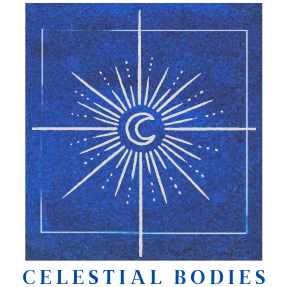INSPIRED BY ISHTAR -THE WARRIOR GODDESS OF RADICAL LOVE
You have to act as if it were possible to radically transform the world, and you have to do it all the time
Angela Davis
SAHASRARA CROWN CHAKRA: OUR QUEST FOR UNITY
THE SEVENTH IN OUR CHAKRA SERIES
As the name implies, the Crown Chakra sits at the top of our head and represents our quest for unity with others and the universe. Ishtar is one of the earliest Goddesses in the historical record. Her mythology dates back to the Sumerians in 4000 BCE. Ishtar has eaten the forbidden fruit and possesses the full knowledge of good and evil. She leverages this knowledge to dispense her divine justice. She is the goddess of radical love—not the marriage and motherhood kind. In fact, her cult rebuked gender conformity. At the same time, she is the goddess of the battlefield “terrifying in her radiance” and quick to “strap on her sandals” and join a fight for justice. Both peace-loving and fierce, her dual nature is represented by a dove and a lion. When depicted in human form, she is armed to the teeth and surrounded by flowers. She was a spiritual warrior.
Interestingly, the word unity comes from an Anglo-French compound of “uniqueness” and “oneness.” But for many, unity has come to mean conformity. Philosophers, scientists, radicals, revolutionaries, monks, and mystics have all circled the challenge of unity and its potential to resolve the problems of humanity. But history shows us that top-down philosophy, creed, and dogma cannot achieve the same momentum as the grassroots coming together of diverse people aligned to a common cause.
Serendipitously, I found myself visiting a Unitarian Universalist Church on Sunday. I am intrigued by the notion of inclusive, liberal people with varied spiritual foundations, gathering and aligning around social justice in both “creed and deed.”
I’m sharing a paraphrased version of their six living-tradition sources for us to contemplate as we negotiate our spiritual journey:
SOURCES ON OUR quest for unity
- Direct experience of the transcending mystery and wonder, affirmed in all cultures, moves us to a renewal of the spirit and an openness to the forces which create and uphold life
- The words and deeds of prophetic women and men challenge us to confront powers and structures of evil with justice, compassion, and the transforming power of love
- Wisdom from the world’s religions inspires us in our ethical and spiritual life
- Jewish and Christian teachings call us to love our neighbors as ourselves
- Humanist teachings counsel us to heed the guidance of reason and the results of science and warn us against idolatries of the mind and spirit
- Spiritual teachings of earth-centered traditions that celebrate the sacred circle of life and instruct us to live in harmony with the rhythms of nature




